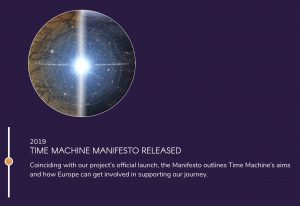
Table of Contents
Mapping cultural records from galleries, libraries, archives and museums.
Analysing big data from Europe’s past, this research initiative by Time Machine EU has the potential of being one of the continent’s most advanced artificial intelligence projects.
It will seek to “to design and implement advanced new digitisation and Artificial Intelligence (AI) technologies to mine Europe’s vast cultural heritage”.
What benefit could it bring?
Through using AI and machine learning, it will take complex historical data sets and analyse them to provide meaningful information. If successful, it would provide “usable knowledge to industry” and enable free access to data to “support future scientific and technological developments in Europe”, according to the team.
The 10 year project would have huge implications and be a fundamental game changer for public services too. The team predicts the new information source will give “rise to new professions, services and products in areas such as education, creative industries, policy making, smart tourism, smart cities and environmental modelling.
“For example, services for comparing territorial configurations across space and time will become an essential tool in developing modern land use policy or city planning. Likewise, the tourism industry will be transformed by professionals capable of creating and managing newly possible experiences at the intersection of the digital and physical world.”
The team also hope the project will develop a digitisation tool for global heritage.
Who is funding it?
AI Time Machine EU is one of the projects which has received funding from the European Union.
A number of academics, professional organisations, researchers and support from industry representatives from across Europe are involved.
It is also supported by Women in AI, a non-profit do-tank working towards increasing female participation in artificial intelligence.
Further reading
Presentation at the Warburg Institute on The Venice Time Machine Project: Digitising Heritage in Time and Space (24 January 2019)
Europe’s Time Machine (ABC, 23 September 2018) – interview with Frédéric Kaplan
Scientists reveal ancient social networks using AI – and x-rays (Wired, 21 March 2019)